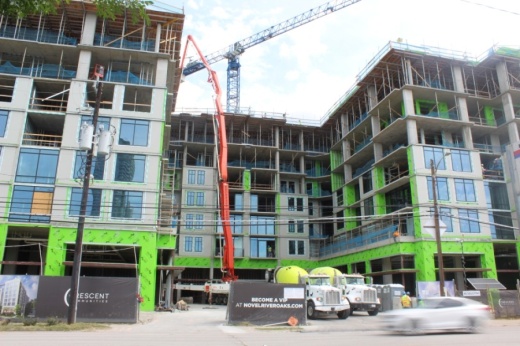“The sense is, with COVID-19 ... affordability is only going to get worse,” said Kyle Shelton, one of the authors of the institute’s first comprehensive look at housing in Harris County, which was released June 23.
Inspired in part by Harvard University’s State of the Nation’s Housing annual report, the Kinder Institute hopes to offer this annual snapshot as a local benchmark for informing future housing decisions as well as policy decisions, though the institute did not advocate for any approaches in its first year, Shelton said.
“We’ve done a great job at describing the problems ... but more and more we want to think about, what are the solutions?” said Mary Cunningham, vice president for Metropolitan Housing and Community Policies at the Urban Institute. She was one of three panelists invited to weigh in on the report June 23.
Using aggregated data from the American Community Survey as well as the Houston Association of Realtors, the Kinder report noted the increasing trend toward renting overall as home ownership pulled further out of economic reach, with 57% of Houstonians and 45% of Harris County residents renting as of 2018.
A household earning the median income in 2018 could afford a home priced at around $186,000, but the median market price was $220,000 that year.
“The affordability gap is even worse for renters, making it nearly impossible for the average renter to purchase a home without significant subsidy,” the report notes.
Renters are also increasingly unable to build the savings needed to work toward a home purchase, with 47% paying over 30% of their income on rent and 25% paying more than 50%, according to the report. Homeowners do not see the same challenges, the report found.
“Renters are stretched and can’t keep up, and so you can see a cycle where they are stuck where they are,” Shelton said.
This is particularly troubling, he said, with home ownership declining among Black households and income tied up in higher-rent properties.
“Housing dollars are dollars spent you can’t spend on something else. ... They aren’t paying for education or health care, and they aren’t building generational wealth,” Shelton said.
The report also noted a mismatch between supply- and income-based demand, with more multifamily units being built to serve the higher end of the market, for example.
“The next step I would really think about is setting some targets, ... really thinking about production targets by income-band,” Cunningham said. “Supporting affordable housing in your neighborhood is a great place to start.”
Advocates also called for longer-term strategies rather than responding to natural and economic disasters as they come.
“We keep working on a knee-jerk reaction,” said Allison Hay, executive director of Houston Habitat for Humanity. “We don’t have a plan that goes far enough along to help families for generations and help Houston grow as a city.”
Access the State of Housing report below.





